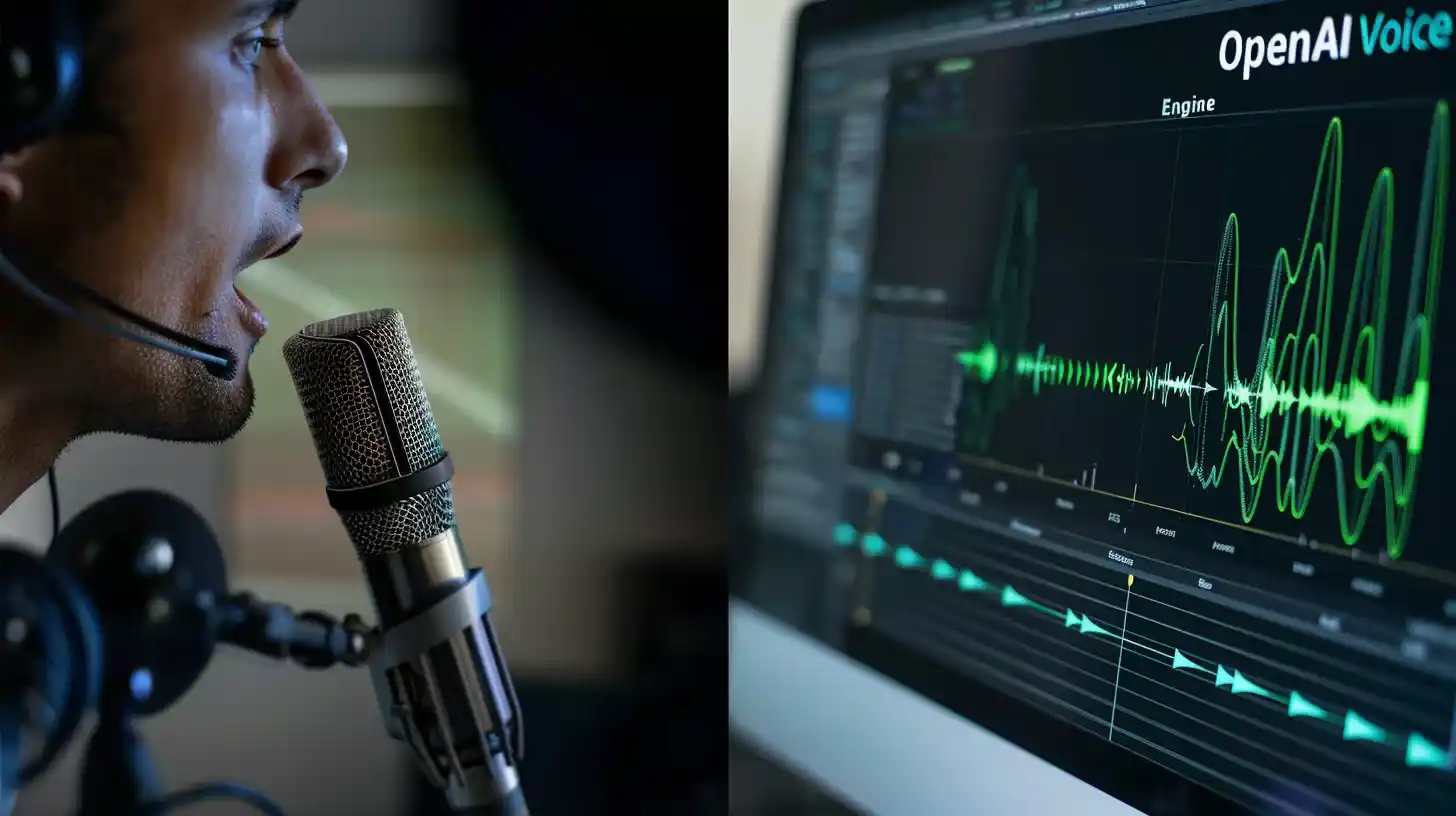Table of Contents
OpenAI Voice Engine is making waves in the tech world with its ability to clone voices using just a 15-second audio sample. This innovative tool has the potential to revolutionize various fields, but it also raises serious ethical concerns. Let’s delve deeper into the capabilities of OpenAI Voice Engine and explore the potential benefits and risks associated with this groundbreaking technology.
Unveiling the Power of OpenAI Voice Engine
OpenAI Voice Engine builds upon the company’s existing text-to-speech (TTS) API. Previously, the TTS API offered generic voices for text conversion to speech. However, OpenAI’s Voice Engine takes voice customization a giant leap forward. By feeding it a short audio clip, users can create a custom voice model that mimics a specific speaker. This opens doors for a variety of applications, including:

- Enhanced Reading Assistance: Individuals with reading difficulties can leverage OpenAI Voice Engine to convert text into speech using a voice that closely resembles their own. This personalized experience can significantly improve accessibility and enhance the reading process.
- Revolutionizing Language Translation: OpenAI Voice Engine has the potential to revolutionize language translation by generating translated speech that retains the speaker’s original voice characteristics. Imagine being able to listen to a translated speech that sounds as if the speaker was speaking your native language in their own voice!
- Restoring Lost Voices: For people who have lost their ability to speak due to illness or injury, OpenAI Voice Engine offers a potential avenue to regain a voice that sounds natural and familiar. This technology could have a profound impact on the lives of individuals struggling with speech loss.
The Dark Side of OpenAI Voice Engine
While the potential benefits of OpenAI’s Voice Engine are undeniable, the ability to create near-perfect replicas of someone’s voice also poses serious risks. Malicious actors could easily exploit this technology for malicious purposes, such as:
- Voice Phishing Scams: Scammers could leverage OpenAI’s Voice Engine to impersonate trusted individuals like bank officials or family members. By mimicking a familiar voice, they could trick victims into revealing personal information or sending money.
- Spreading Disinformation: Malicious actors could create fake audio recordings of public figures using the OpenAI Voice Engine. These deepfakes could be used to manipulate public opinion, sow discord, or damage reputations.
- Identity Theft: OpenAI’s Voice Engine could be used to create deepfakes of someone’s voice, potentially leading to reputational damage or financial loss. Imagine someone using your voice to authorize unauthorized transactions or spread false information!
OpenAI acknowledges these risks and is taking steps to mitigate them. The company is actively seeking feedback from diverse stakeholders, including governments, media organizations, and educational institutions. Here’s how OpenAI is working to ensure the responsible development of the OpenAI Voice Engine:
- Usage Policies: Testers of OpenAI Voice Engine must adhere to strict policies that prohibit impersonation without consent and require disclosure of AI-generated voices. This helps ensure transparency and prevent misuse.
- Watermarking Technology: OpenAI is exploring ways to embed watermarks in generated audio using OpenAI Voice Engine. These watermarks would help identify the origin of the audio and prevent its misuse for malicious purposes.
- Proactive Monitoring: OpenAI is committed to proactively monitoring the use of OpenAI Voice Engine to detect and prevent potential misuse. This ongoing vigilance is crucial to ensure the technology is used responsibly.
The Road Ahead: Responsible Development is Key
The development of the OpenAI’s Voice Engine represents a significant leap forward in voice technology. However, it also raises critical questions about the ethical implications of such powerful tools. OpenAI’s cautious approach, with its focus on responsible development and safeguards, is commendable. As the OpenAI’s Voice Engine evolves, the company must continue collaborating with various stakeholders. By working together, we can ensure that this technology benefits society without falling into the wrong hands. Only through a commitment to responsible development and robust safeguards can the true potential of OpenAI Voice Engine be fully realized.